Posted: 19/12/24
Students explore benefits and barriers within the legal profession
A-Level students at Mansfield and Ashfield Sixth Form College brought the subject of social mobility within the legal profession to the table, meeting a panel of industry professionals.
-
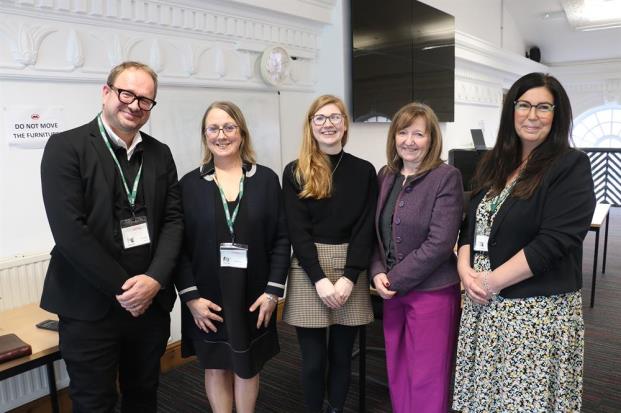
Left to right Mark Wood, Andrea Cropley, Laura Pinkney, Joanne Godson and Emma Walker
-
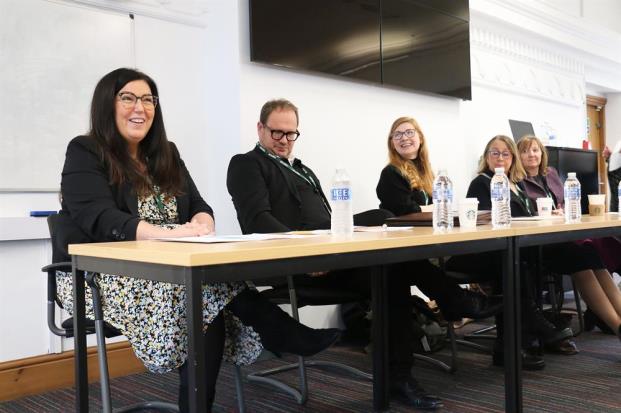
The panel faced intelligent questioning and further challenges from students
-
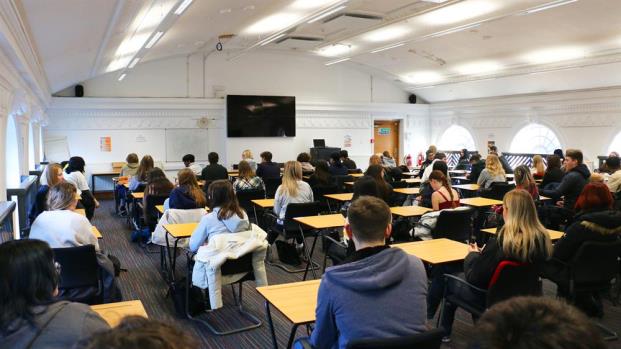
Students were ready with a wealth of questions about social mobility
-
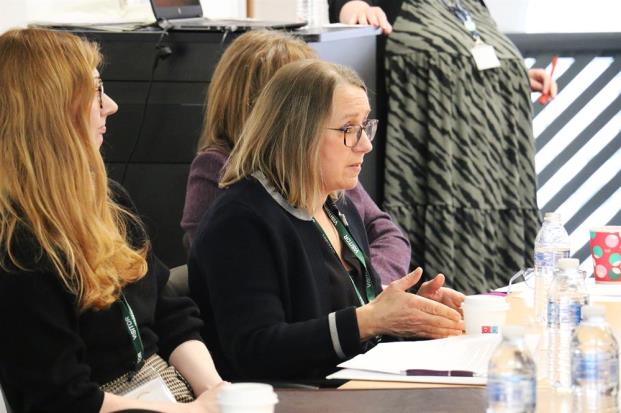
Andrea Cropley spoke of her wealth of experience in the legal world
-
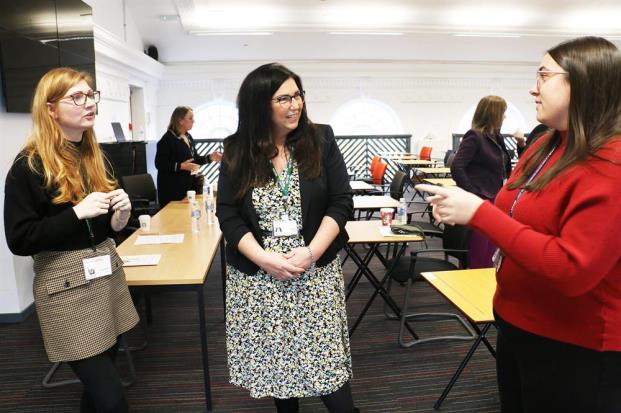
Teachers thanked the guests for their time sharing their knowledge with students
The panel consisted of Laura Pinkney, head of Nottingham Trent University’s law school, Andrea Cropley, partner at Squire Patton Boggs international law firm, Emma Walker, area manager for north Nottinghamshire’s DANCOP team, Joanne Godson, people and operations director at Fidler and Pepper Lawyers, and Mark Wood, senior office partner at Eversheds Sutherland.
The debate, hosted by vice-principal of communications, engagement, and student experience, Louise Knott, invited a group of around 50 students to ask the panel a range of questions around social mobility in the legal sector.
Discussions focused on what law firms can do in the present day to remove any unconscious bias when hiring and promoting legal job roles. The panel gave their opinions on the matter based on their own personal experiences and what they have faced working in the legal sector.
There was robust debate between students and the panel members about the barriers that exist in becoming a lawyer. Students quizzed the guests about their perceptions on this matter. The question of whether there are more barriers for barristers than there are for solicitors was discussed.
Learners also explored the subject of what skills lawyers from fee-paying schools might have that those who were taught at state schools don’t possess. There was great discussion on this matter and panel members shared their views as well as providing examples of individuals who have been through both teaching systems.
Students asked the panel what they think state schools could do in order to compete more effectively with students from fee-paying schools for jobs in the legal sector. There was much discussion around the state versus fee-paying education system.
There was debate around the benefits of networking opportunities and students enquired whether this is easier through public or private schools. The panel also spoke their own personal challenges related to social mobility throughout their own careers.
Curriculum area lead for the sixth form Beverly Whitefoot, said: “"I was delighted that we were able to secure the contributions of such a varied group of professionals to answer our students’ questions on this important subject.
“Many of our students feel there may be some insurmountable barriers to them achieving their aspirations in this field and it was so good to hear from a group of people who had overcome them, each in their own unique way.
“It was so reassuring to hear them explain how their backgrounds and experience could be seen as such an advantage when moving forward in this field and I am hopeful that more than a few minds will have been changed after such a valuable hour in their company."
Eighteen-year-old politics, business and law student Kane McCartney said: “I found this session very beneficial for gaining an insight into what firms are looking for and what we could do to showcase this, and to compete with those from fee-paying schools.
“I think the most interesting part of the session was hearing the different points of view from the professionals, and how those from international firms have different experiences to those from local firms. I am looking to become a solicitor after completing a law degree at university.”